There is a strong link between the liver and your weight via hormone balance. A diseased liver can lead to weight gain.
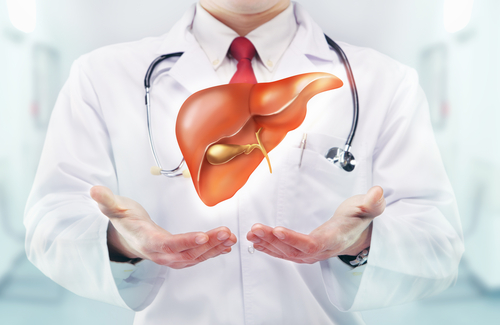
Video Link: https://vimeo.com/249742691
Video Download: How The Liver Influences Weight Gain And Hormone Balance
Video Stream: How The Liver Influences Weight Gain And Hormone Balance
The liver is one of the body's essential organs, and one of its primary purposes is to break down fat into usable energy. The liver plays a role in converting all of the calories that you intake into  usable energy.
usable energy.
The body relies on fat tissue to store energy, but weight gain creates a situation where adipose fat cells can't grow fast enough to absorb the calories.
This puts stress on the liver, leading it to become overloaded with fat, which further impairs your body's metabolism and contributes to further weight gain.
Proper nutritional balance and a well-balanced diet keep the liver healthy and can resolve these weight gain issues, but it can take time for the liver to process out all of the fat. When the liver has trouble keeping up, this puts further stress on the gallbladder, which is responsible for producing the bile which aids in fat digestion.
The gallbladder can overload to the point that it needs to be removed — over half a million people undergo gallbladder surgery in the United States, annually.
What Happens When the Liver Can't Meet the Body's Demands?
The liver processes energy coming into the body, and it also helps metabolize proteins and other products for waste removal. When the liver is overloaded with sugar and fat, this breaks down the ![]() normal process of storage and elimination which protects and preserves health.
normal process of storage and elimination which protects and preserves health.
It contributes to heart disease risk, atherosclerosis, diabetes, and more. It even leads to premature aging!
The liver is there both to create energy and to break down the byproducts of human physiology, evacuating them before they lead to dangerous health issues.
The liver is responsible for maintaining the physiological balance. When the liver falters, the whole body suffers, and weight gain will be the least of your problems.
The liver is also essential to hormone balance. Human Growth Hormone (HGH) is among the body's many vital metabolic hormones. The body produces HGH to extract energy from adipose fat cells, along with its other critical cellular functions.
Most of the heavy lifting is done by HGH metabolites, including Insulin-like Growth Factor-1 (IGF-1), which are produced by the liver.
The liver has mechanisms to correct the imbalance, but obesity and chronic overeating create a situation that overwhelms the liver and leads to a physiologically dangerous situation.
Adipose fat cells produce a hormone known as leptin when energy stores are high. Leptin suppresses feelings of hunger. Unfortunately, when leptin concentrations in the bloodstream go up, adiponectin levels go down.
Adiponectin is responsible for encouraging insulin sensitivity to help break down carbohydrate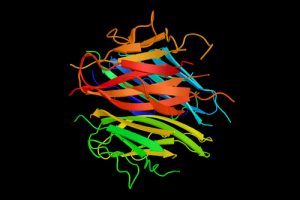 s in the bloodstream. Insulin insensitivity causes your body to store calories from carbohydrates rather than burn them for energy, and it also causes blood glucose levels to increase dramatically.
s in the bloodstream. Insulin insensitivity causes your body to store calories from carbohydrates rather than burn them for energy, and it also causes blood glucose levels to increase dramatically.
This creates a cycle that is terrible for health and makes it harder to lose weight, while also drastically increasing the risk of diabetes.
People struggling with a fatty liver experience Type-2 Diabetes at five times the standard rate!
If you find that you are gaining weight even when you are eating carbohydrates in moderation, this is a sign that your liver may be overloaded. This also leads to spikes and valleys in blood sugar which are conducive to the development of diabetes.
Fat Storage vs. Fat Burning
The issues associated with carbohydrate metabolism are only a part of the problem. As mentioned earlier, the liver is also the primary center for fat metabolism, assisted by the gallbladder. When the live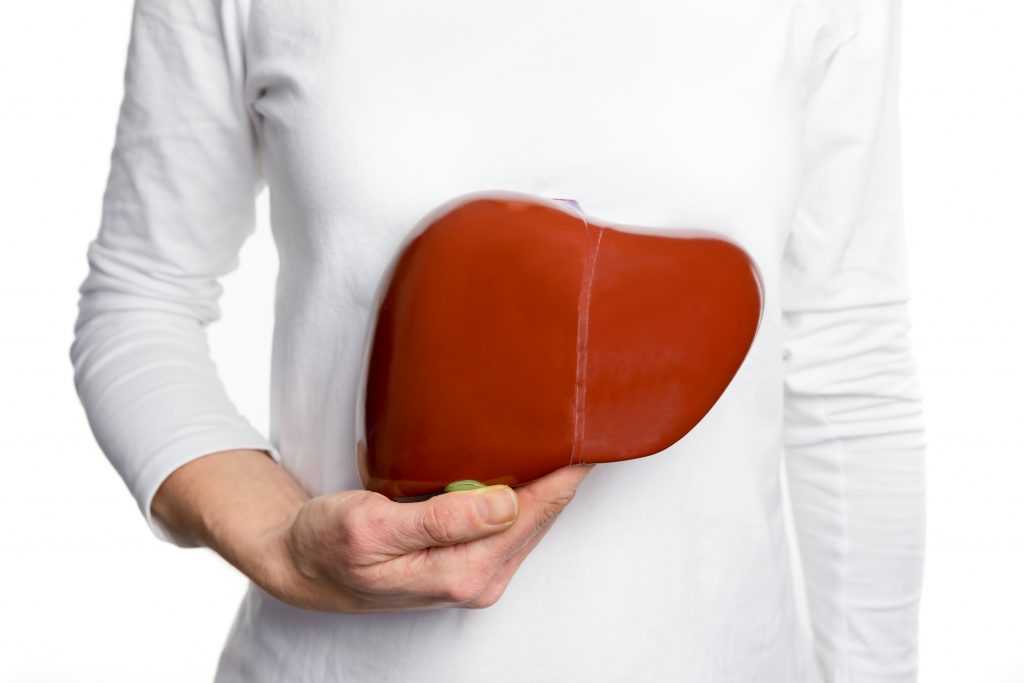 r is overloaded, this keeps the liver from adequately processing fat.
r is overloaded, this keeps the liver from adequately processing fat.
Adipose fat cells and the liver attempt to work in harmony to maintain healthy triglyceride levels while also storing energy for future use.
When the liver starts to falter due to fatty liver, this causes the body to store fat more readily than it burns it, which is associated with a dangerous increase in serum triglyceride levels. It turns out that this has a direct impact on genetic expression, further exacerbating fatty liver.
What are Healthy Triglyceride Levels?
To accurately assess triglyceride levels, a blood sample must be taken while in a fasting state. The rule of thumb is that triglyceride levels under these circumstances should never be more than double your HDL “good” cholesterol. There are some common-sense steps that you can take to get your triglyceride levels under control.
For example, limiting caloric consumption to mealtimes can help get your body back on track. Late-night snacks and stress-eating both prevent the liver from reaching equilibrium.
Of course, you should also control your caloric consumption during meals, because even if you only eat two or three times per day, if you overeat, this will still put stress on your liver. Furthermore, intermittent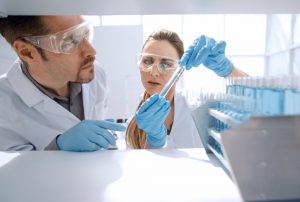 fasting has proven itself highly effective at preserving the body's natural dietary, hormonal rhythms, maintaining a balance that protects both health and longevity.
fasting has proven itself highly effective at preserving the body's natural dietary, hormonal rhythms, maintaining a balance that protects both health and longevity.
Serum triglyceride levels are a crucial indicator of liver health. They reveal whether your liver is up to the task of your dietary habits.
If triglyceride levels are elevated, it's in your best interest to take steps to rectify that imbalance before your health and your life become at risk. As triglyceride levels fall, this proves that you're putting your liver back in control.
How Exercise Promotes Liver Health
The liver responds to physical activity by freeing up energy for exercise. By engaging in regular physical activity, you help promote a healthy liver.
A sedentary lifestyle creates a problematic situation for the liver because the body prefers to utilize energy from carbs and fat directly to facilitate physical activity. As a result, the liver sends energy directly to fatty tissue for storage.
Our bodies are designed by millions of years of evolution to prefer energy storage to energy expenditure. Even then, there are limits to the amount of energy that the body can store as fat at any given time. If the body can't use calories as energy, and it can't save them for fuel, it evacuates them back into the digestive system.
This is a last-ditch effort to get rid of un-usable energy, and the body is not efficiently designed to undergo this process, which makes it physiologically problematic.
How Does the Body Extract Excess Fat, and avoid weight gain?
To get rid of fat that your body can't use, bile and cholesterol levels elevate to draw  excess fat out of the bloodstream and liver and into the digestive system.
excess fat out of the bloodstream and liver and into the digestive system.
This creates an unhealthy imbalance, increasing LDL cholesterol levels in comparison to HDL cholesterol, while also leading to heartburn and acid reflux.
The small intestines are very sensitive to drastic changes in bile concentration. Bile, and the bilirubin which is a component of bile eat at the small intestine, causing inflammation. This concoction can also back up into the stomach, leading to acid indigestion.
Antacid medications do their job well, albeit with some significant drawbacks associated with chronic use. The problem is that most of the time, Antacids treat a symptom of a more serious, underlying issue without getting to the root of the problem.
One meaningful way that you can improve your gastrointestinal health and improve the ability of your digestive system to process waste, along with excess cholesterol and fat, is to include healthy portions of soluble and insoluble fiber in your diet. Fiber helps absorb detritus and get it out of your system before it can harm.
Proteins Help Improve Liver Metabolism
As mentioned, increased LDL cholesterol levels and weight gain are definite signs of an overworked liver. Another way that we recommend to improve liver health is to increase your consumption of healthy proteins while controlling your intake of carbohydrates.
If you're looking for a supplement that has been shown to reduce both triglycerides and cholesterol, we recommend whey protein. When used as directed, high-quality whey protein has a powerfully beneficial effect on protein synthesis and utilization and helps the liver recover from being overwhelmed.
Probiotics Improve Liver and Digestive Health
The human digestive system is a complex ecosystem. The human gut is not a vacuum and relies on various bacteria and microorganisms to function at optimal capacity. A healthy 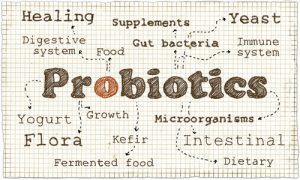 gastrointestinal biome protects the intestines from irritation related to excess bile.
gastrointestinal biome protects the intestines from irritation related to excess bile.
Furthermore, an unhealthy balance of gut microflora has been shown to increase fat deposits in the liver.
A combination regimen of probiotics and prebiotics help restore gastrointestinal health and can prove beneficial for the liver. Probiotics refer to the microorganisms that facilitate digestive health. Prebiotics are non-digestible carbohydrates that help probiotic organisms thrive.
Stress and the Liver
As you likely recognize, the human body and mind are intrinsically linked. Chemicals like Serotonin and Dopamine have potent effects on both psychological and physiological health, for example.
In the same vein, both mental and physical chronic stress has an adverse impact on liver health. Stress increases the production of cortisol. Cortisol is highly beneficial in bursts, but when produced in excess, it can have powerful and vast negative implications for wellness.
Cortisol, along with other stress hormones, create a fight-or-flight response that emphasizes immediate survival over long-term wellness.
This leads to changes throughout the body, including the liver. Research has shown that increasing Cortisol levels are directly associated with an increase in the expression of a specific protein known as HES1, which suppresses the liver's process to metabolize fat. This contributes to both increased adipose fat deposits and fatty liver.
Prescription Supplements That Can Boost Liver Function and Health
There are some medical options available to patients when it comes to improving liver function and health. For example, B12 injections have been shown to facilitate weight loss and liver 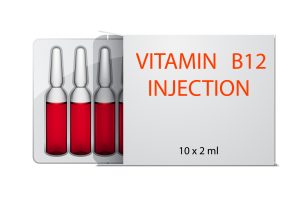 health by enhancing the ability of your liver to break down and metabolize fat.
health by enhancing the ability of your liver to break down and metabolize fat.
Vitamin B12 is often paired with Lipotropic M.I.C. to produce more powerful results.
Lipotropic M.I.C. is a pharmaceutical-grade injection that combines Methionine, Inositol, and Choline to break down fat, encourage weight loss, and improve liver health. Inositol and Choline both belong to the family of B-Vitamins, all of which play an essential role in metabolism. Methionine is useful because it helps to purge the liver of toxins, and it also eventually breaks down into Choline.
Other Nutrients Important for Liver Health
For Methionine to be metabolized and utilized correctly, the body must have appropriate levels of Folic Acid, B12, and B6. This is one reason why it is so common for Lipotropic M.I.C. shots to be combined with B12 injections.
Other nutrients that have a beneficial effect on liver function are Silymarin, Lipoic Acid, Vitamin D, and Vitamin E, which are all fat-soluble antioxidants. Other proprietary antioxidants can also provide significant benefits.
Talk to your doctor. Finally, Omega-3 fatty acids, derived primarily from cold-water fish, egg yolks, nuts, and seeds, are a boon to liver health, protecting the delicate organ from liver disease.
By Taking Steps to Improve Your Liver Health, You Can Vastly Improve Your Wellness
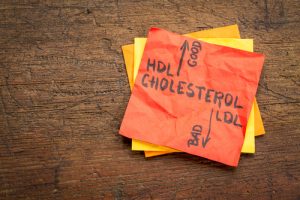 As you can tell, the liver is a complex organ. We've only touched on a small subset of the functions that the liver performs.
As you can tell, the liver is a complex organ. We've only touched on a small subset of the functions that the liver performs.
That's why it's important to take all of the necessary steps to keep your liver happy.
If the liver falters, other systems struggle as a direct result. By following the instructions that we've put forth, you can make some simple lifestyle changes that can have a dramatic impact on your liver health.
If you've been struggling with weight loss, keep in mind the information that we've provided here, and understand that, by improving your liver function, you facilitate metabolic pathways that encourage weight loss. By taking these steps, you do more than lose weight: you can lower your LDL cholesterol and triglycerides while controlling your blood sugar more effectively!
We do, of course, encourage you to work with a qualified medical professional to assess the health of your liver and to gain the insight of a well-trained physician. Our clinic can help you reveal your underlying hormone status and provide advice regarding what steps you can take to improve your liver health, as well as your overall hormone balance.
Reference
Non-invasive diagnosis of liver fibrosis and cirrhosis

- Why you need a blood test before you get Hormone Replacement Therapy protocols of HGH, Testosterone or Sermorelin injections [Last Updated On: December 31st, 2024] [Originally Added On: January 10th, 2020]
- Hormone Therapy After a Hysterectomy: Human Growth Hormone [Last Updated On: November 5th, 2024] [Originally Added On: November 13th, 2020]
- HGH and Bodybuilding [Last Updated On: July 13th, 2024] [Originally Added On: January 20th, 2021]
- Ten HGH Frequently Asked Questions [Last Updated On: July 14th, 2024] [Originally Added On: January 29th, 2021]
- Why You Need HGH -- Six Key Reasons [Last Updated On: July 12th, 2024] [Originally Added On: February 9th, 2021]
- Mark Cuban: The HGH Revolution is Underway [Last Updated On: July 11th, 2024] [Originally Added On: February 10th, 2021]
- Why Are So Many Celebrities Taking HGH? Do They Need It? [Last Updated On: November 20th, 2024] [Originally Added On: February 14th, 2021]
- Fitness and Beauty: The Two Go Hand-in-Hand [Last Updated On: December 29th, 2024] [Originally Added On: February 22nd, 2021]
- COVID-19 Global Pandemic: Boosting Your Immune Defense with Growth Hormone [Last Updated On: December 31st, 2024] [Originally Added On: February 24th, 2021]
- Growth Hormone Leads to Liver Regeneration and helps support healing post surgery. [Last Updated On: January 7th, 2025] [Originally Added On: March 5th, 2021]
- HGH Injections May Improve ACL Surgery Outcomes [Last Updated On: July 10th, 2024] [Originally Added On: March 7th, 2021]
- Five Simple Ways to Naturally Increase HGH Levels [Last Updated On: November 14th, 2024] [Originally Added On: March 9th, 2021]
- Buying HGH Scams Versus Buying Real Injectable HGH [Last Updated On: August 13th, 2024] [Originally Added On: April 26th, 2021]
- How Growth Hormone (HGH) and Leptin Affect Weight Loss and Dieting [Last Updated On: July 8th, 2024] [Originally Added On: April 30th, 2021]
- How Human Growth Hormone Supports Beauty and Youthfulness [Last Updated On: July 9th, 2024] [Originally Added On: May 7th, 2021]
- HGH and Testosterone Comprehensive Hormone Therapy [Last Updated On: July 6th, 2024] [Originally Added On: May 12th, 2021]
- Growth Hormone Deficiency, the Immune System and COVID-19 [Last Updated On: January 7th, 2025] [Originally Added On: May 22nd, 2021]
- It’s Not Just Anecdotal: Science Says Growth Hormone Creates Faster and Leaner Athletes [Last Updated On: November 3rd, 2024] [Originally Added On: June 18th, 2021]
- Women: 15 Warning Signs Your HGH Might Be Low [Last Updated On: November 4th, 2024] [Originally Added On: August 19th, 2021]
- HGH Doctors [Last Updated On: July 7th, 2024] [Originally Added On: September 17th, 2021]
- Beware the HGH Ripoff Artists [Last Updated On: November 2nd, 2024] [Originally Added On: September 27th, 2021]
- HGH and Fertility in Women [Last Updated On: September 19th, 2024] [Originally Added On: October 7th, 2021]
- Human Growth Hormone Is Something You Absolutely Need [Last Updated On: November 1st, 2024] [Originally Added On: October 20th, 2021]
- Focus on These Five Workouts to Naturally Boost Both HGH and Testosterone [Last Updated On: October 2nd, 2024] [Originally Added On: March 16th, 2022]
- We Were Ripped Off – Twice! – by HGH Scammers [Last Updated On: October 9th, 2024] [Originally Added On: June 9th, 2022]
- Which is Better? Suffering or Balancing Your Hormones for True Vitality? [Last Updated On: October 17th, 2024] [Originally Added On: September 7th, 2022]
- Tennis Game Over? Not at All! [Last Updated On: September 15th, 2024] [Originally Added On: January 18th, 2023]
- HGH and Sexual Relationships [Last Updated On: August 10th, 2024] [Originally Added On: February 1st, 2023]
- Danger: Masculinizing Effects in Women – and Feminizing Effects in Men – Can Happen if You Use Questionable HRT Sources [Last Updated On: October 31st, 2024] [Originally Added On: February 10th, 2023]
- “If You’re Not Horny, You’re Not Healthy.” [Last Updated On: September 13th, 2024] [Originally Added On: March 1st, 2023]
- An Actor’s Story – HGH Testimonial [Last Updated On: August 16th, 2024] [Originally Added On: April 6th, 2023]
- The Science behind Norditropin: How It Stimulates Growth [Last Updated On: December 27th, 2024] [Originally Added On: November 23rd, 2023]
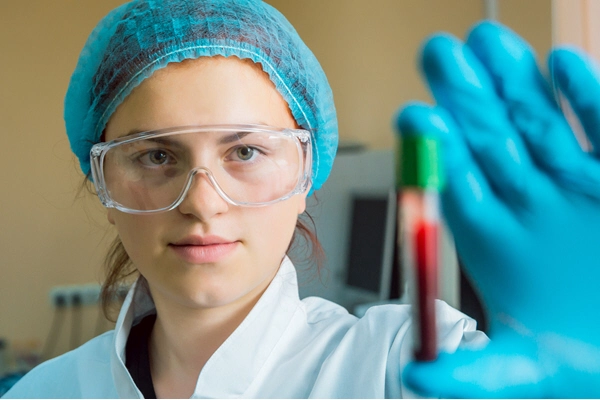
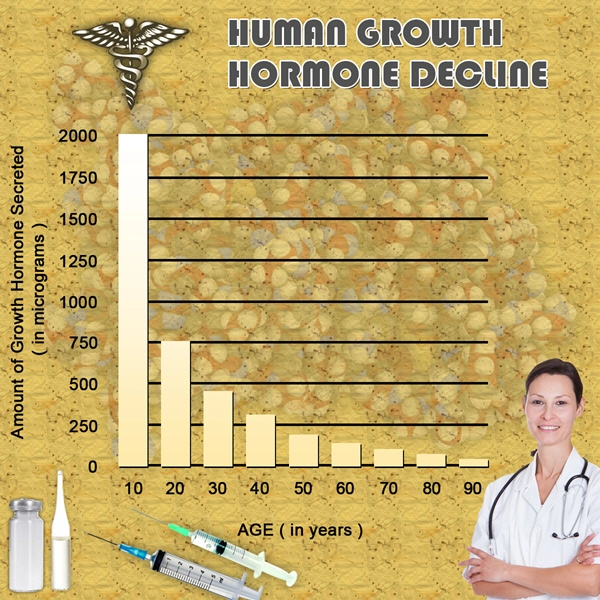
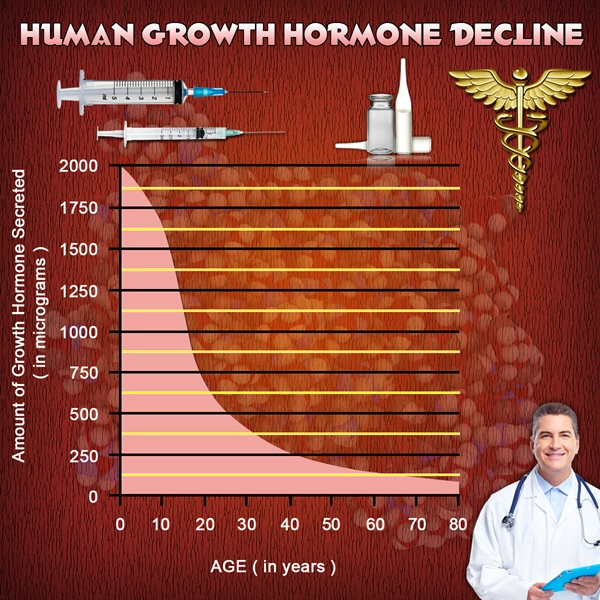
List of USA state clinics - click a flag below for blood testing clinics.
Word Count: 2055



















































